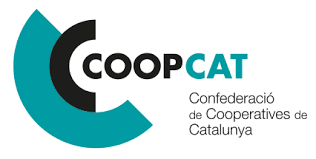- Presentation and important dates
- Conference rationale & thematic lines
- Transdisciplinary Forum
- Conference committees
- Conference organisers
- Abstract submission
- Conference registration
- Available support
- Practical information and FAQs
- Gallery
The Conference will have a hybrid format, so face-to-face and digital participation is foreseen. As organizers, we will continue to closely monitor the evolution of the Covid-19 pandemic and keep all registered participants informed.
Conference rationale
The growing global social and environmental challenges facing contemporary societies demand more than ever that social enterprises, cooperatives and voluntary organizations put their sometimes divergent hallmark principles and values into practice. A critical question lies in exploring the challenges and promises involved in bringing social enterprise principles and values into action.
We invite scholars to explore synergies between different disciplines within social enterprise research and catalyze critical debate between different research communities (e.g. those relating to social enterprise, social solidarity economy, cooperatives and voluntary action) on the state of the art research and practice. Specifically, we invite contributors to reassess the nature of and controversies surrounding definitions and conceptualizations of these fields.
Some of the questions behind these issues include:
- What are the distinguishing principles and values that specifically characterize social enterprises, cooperatives and voluntary organizations?
- How do they converge/diverge and with what implications for addressing societal challenges?
- How do such principles and values guide the functioning of these organizations?
- What are the internal challenges and external threats to put these principles and values into practice?
- Are some social enterprises, co-operatives and voluntary organizations departing from their original principles and values, and if so, what are the consequences?
- How do these organizations manage to address different and often competing demands stemming from simultaneously embracing business, social and environmental goals?
- Can social enterprises influence other organizations to engage in more responsible behaviors in social and environmental terms?
- What are the wider economic, social, societal, and environmental implications of bringing social purpose principles and values into action?
Social enterprises of all forms naturally span several types of boundaries, including actors (public, business, cooperative, associational), resources (market, public procurement, grants, volunteering) and activity fields. Their social mission is usually linked to the activity field(s) in which they operate, ranging from more traditional fields, such as health and social care and work integration, to the emergence of innovative fields, such as social finance, circular economy, platform cooperativism, eco-entrepreneurship, urban regeneration, innovative housing patterns, renewable energy and food supply alongside the social and work integration of migrants. In many cases, they are the result of, or are connected to, a transition movement that in different contexts seeks new models to face social and economic challenges. The entrepreneurial behavior of social enterprises gives new nuances to the tools that already exist for traditional businesses and charities. Moreover, the characteristics of the exchanges, commercial or otherwise, in which they are involved, cause transformations at meso and even macro levels in the institutions that exist in their communities, and the local environments in which they are embedded.
Taking a worldwide and interdisciplinary research perspective, this conference invites diverse scholarly communities to discuss the challenges faced by social enterprises, cooperatives and voluntary organisations to put their principles and values into action, as well as the potential of these organizations to address critical sustainable development goals.
The conference will bring together research communities from all over the world studying different aspects of the third sector through a variety of theoretical lenses and perspectives. These include, but are not limited to, social innovation, social entrepreneurship, voluntary and solidarity action, hybrid organizing, institutional logics, the commons, the transitions, and critical management.
Thematic lines
To encourage academic debate across fields and disciplines, the conference will be structured along 11 main thematic lines to build up an international corpus of theoretical and empirical knowledge, pluralistic in disciplines and methodologies, around “SE” concepts and their praxis. We would particularly encourage authors to submit proposals that address current global challenges and contexts including (but not limited to) the Covid19 pandemic, unemployment, social and racial justice, new patterns of inequality across all thematic lines.
- Line 1. Theoretical foundations of social enterprise, cooperative and voluntary action principles and values: Complimentarities, contradictions and their implications
- Line 2. Sustaining and scaling social, cooperative and voluntary action: Balancing and funding SE principles over time
- Line 3. Values-driven social innovation and entrepreneurship
- Line 4. Multi-Level governance, enabling ecosystems for SE and sustainable development
- Line 5. SE meets the commons: social technologies, collaborative economy and open data
- Line 6. Innovative fields in the SE action: social and health services, sports, etc.
- Line 7. Unleashing the critical and transformative potential of culture and the arts through SE, cooperative and voluntary action
- Line 8. Empowering migrants and harnessing the potential of migration via SEs and voluntary action
- Line 9. SE, popular, and solidarity economies of the Global North and South: transformative movements, radical values and forms of democracy in action
- Line 10. SE research and action under Polanyian principles
- Line 11. Advancements on epistemological, methodological and pedagogic aspects of SE
Each thematic line is coordinated by three conveners who are renown international scholars experts in the field. Download the Call for Papers for a detailed list of conveners.
Follow updates on the conference and sign up for the EMES News Alert and EMPOWER-SE News Alert
- For any questions about this conference, please write to 8emesconf@emes.net
- Facebook: www.facebook.com/emesnetwork | www.facebook.com/sheffieldhallamuniversity/
- Twitter: @emesnetwork | @LAB_ES_Unizar
- Event hashtags: #8EMESconf | #EMPOWERSE_EU




















